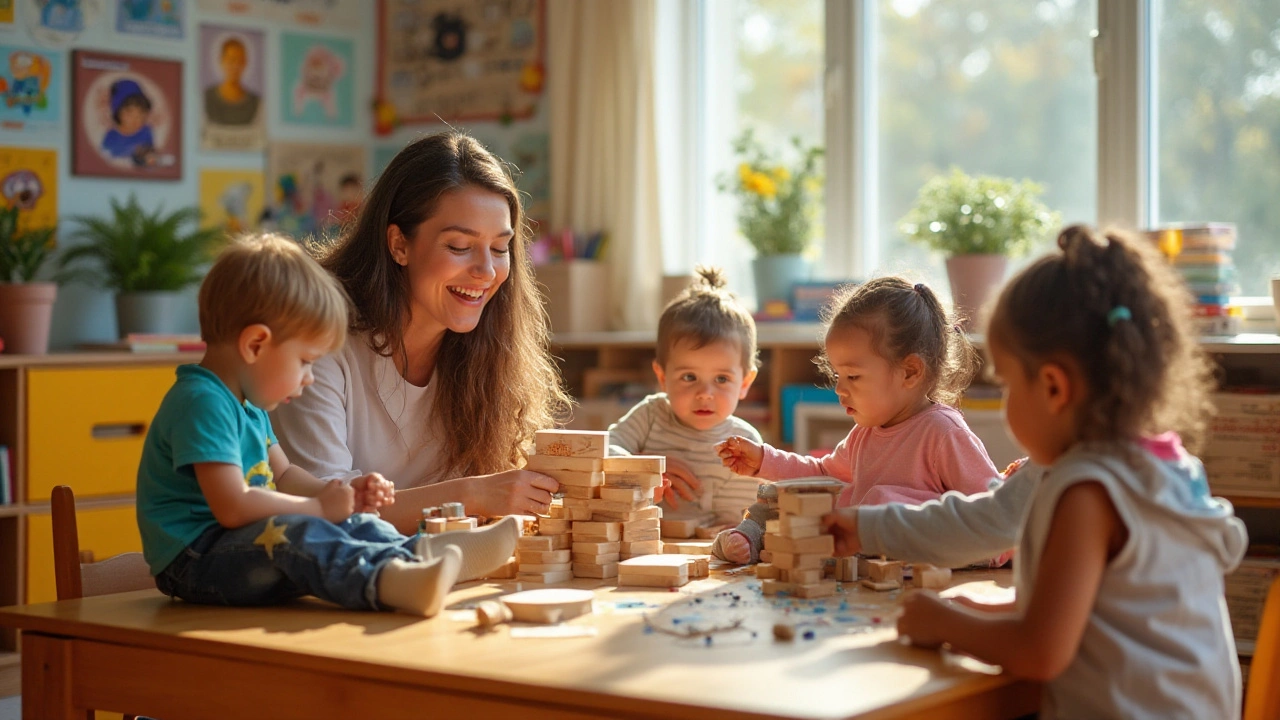Early Education: Why It Matters and How to Get Started
When you’re looking after a little mind, every moment counts. The first few years shape how a child thinks, talks and solves problems. That’s why early education isn’t just a nice‑to‑have – it’s a must‑have. Below you’ll find straight‑forward ways to make those early years count, whether you’re a parent, teacher or caregiver.
Key Benefits of Early Years Learning
Kids who get quality early education tend to read earlier, stay in school longer and earn more as adults. They also develop better social skills, like sharing and taking turns, because they practice them in a safe setting. Brain research shows that the first five years are a rapid growth spurt for language and memory, so the right activities can lock in those pathways for life.
Beyond academics, early education builds confidence. When a child solves a simple puzzle or sings a new song, they feel capable and are more likely to try harder tasks later. That boost in self‑esteem helps them tackle challenges in primary school and beyond.
Practical Tips for Parents and Teachers
Start with play that has a purpose. Simple games like “I Spy” improve vocabulary, while building blocks teach basic math concepts like size and balance. Rotate toys every few weeks to keep curiosity alive and to introduce new ideas without overwhelming the child.
Read aloud every day, even if it’s just a short picture book. Point to pictures, ask “What’s this?” and let the child guess. This back‑and‑forth builds language skills faster than silent reading.
Set up a routine that includes short, focused learning moments. A five‑minute counting game after breakfast or a quick drawing activity before bedtime works better than long sessions that feel like chores.
Use everyday moments as learning chances. While cooking, talk about measurements – “We need half a cup of milk.” While walking, name colors and shapes you see. Real‑world context makes abstract ideas concrete.
If you need more ideas, check out our article “What Is Early Years Education? Understanding the Importance for Childhood Development.” It breaks down why the foundation years matter and lists easy activities you can try tomorrow.
Another useful read is “Polite Terms for Special Needs: Language, Respect, and Modern Etiquette.” It helps you talk about inclusion in a way that respects every child’s dignity.
Remember, consistency beats intensity. A little bit of focused interaction each day adds up to big gains over weeks and months. Keep the environment safe, supportive and full of praise, and you’ll see children blossom naturally.
Early education is a partnership between adults and little learners. By weaving learning into daily life, you give children the tools they need to thrive now and later. Start small, stay consistent, and watch the magic happen.

Understanding the Early Years Curriculum: Key Elements and Insights
- by Eliza Fairweather
- on 13 Nov 2024
Discover what the early years curriculum is and why it's crucial for young children's development. This piece explores foundational elements and principles, highlighting ways to support learning during these critical years. Learn how play-based approaches and hands-on activities shape a child's journey. Practical tips for parents and educators ensure a thriving environment for little learners.
